Why Cameron is pulling out all the stops for India's Modi
- Published
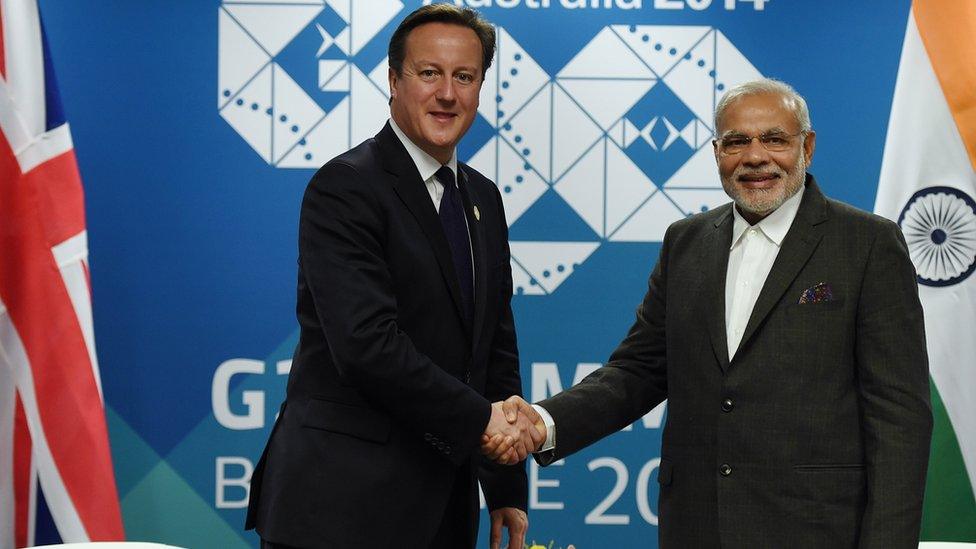
David Cameron is getting ready to roll out the red carpet for Narendra Modi
The leader of the fastest growing large economy in the world is visiting Britain.
No, President Xi Jinping of China isn't back for second helpings from the Buckingham Palace banquet, this time it is the Indian prime minister who is stopping by.
India has overtaken China to take the top spot in the tables of international economic good health and David Cameron is getting ready to roll out the red carpet for Narendra Modi.
Mr Cameron will be pulling out all the stops.
The Indian prime minister isn't a head of state so he won't get the full bearskin and gilded carriage reception accorded to the Chinese president last month.
He will, however, get lunch with the Queen and a superstar appearance at Wembley stadium where we are told he will be joined on stage by Mr Cameron.
Formidable economy
The warmth of the welcome is evidence of how the terms of trade between the two countries have shifted in recent years. Now Britain is the eager suitor proffering bouquets on bended knee; India the slightly aloof object of desire.
Indian businesses in the UK
110,000
people are employed by Indian companies operating in the UK
-
13 Indian companies each employ more than 1,000 people in the UK
-
65,000 people work for Tata Group, which owns 5 of those 13 companies
-
28,000 of those work for Tata Motors, which owns Jaguar Land Rover
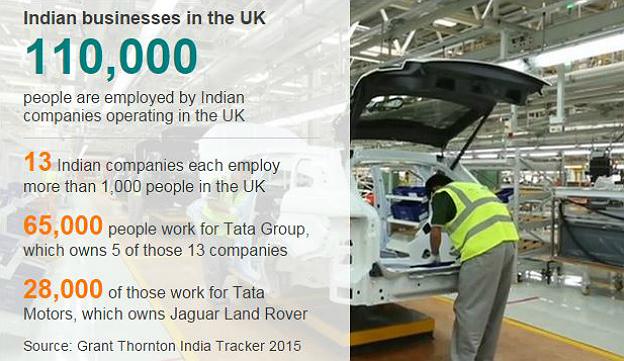
Mr Modi sells himself as a non-nonsense technocrat who transformed his home state, Gujarat, into an economic powerhouse. He won a landslide a year-and-a-half ago on the promise that he would do the same for the entire country.
He has suffered some setbacks. Many of his reforms have been blocked in parliament but India is still a formidable economic force, growing at some 7% a year.
Mr Cameron told Mr Modi last year that "relations with India are at the top of the priorities of UK's foreign policy".
And he has put in the air miles to prove he is serious.
He has visited India three times since he came to power, even leading the largest trade mission ever made by a British prime minister to any nation. He brought enough government ministers and business people to Mumbai in February last year to fill a jumbo jet.
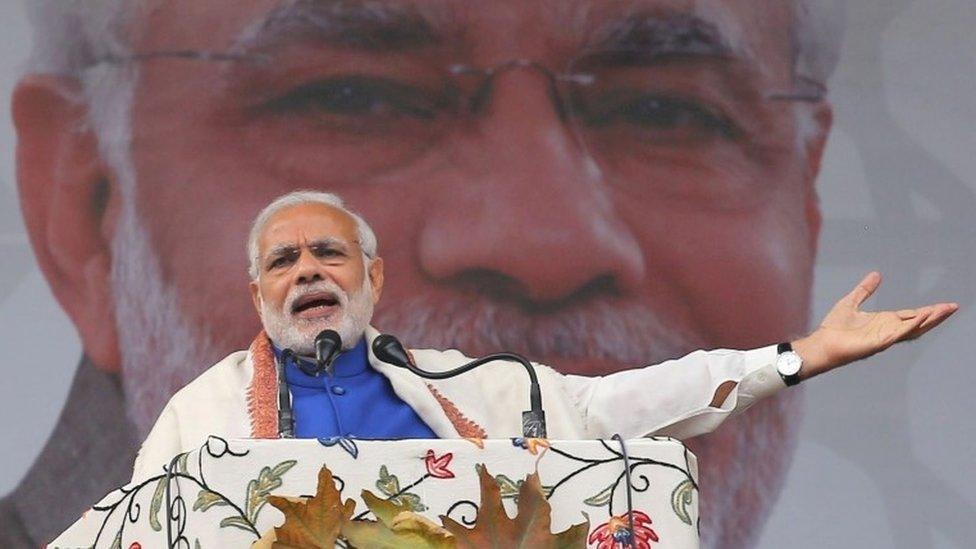
Mr Modi has just received a battering in a key election in Bihar
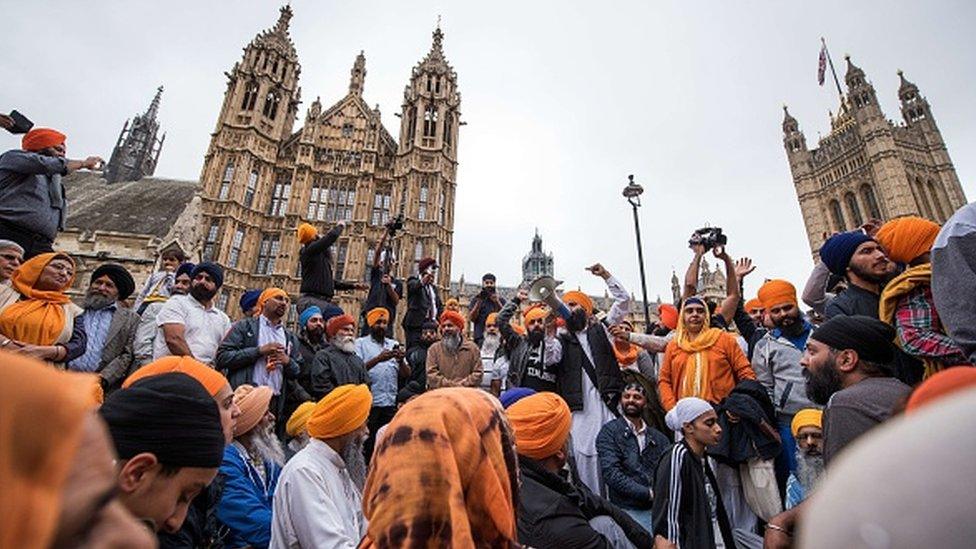
Britain is home to one of the largest Indian diaspora in the world
It is easy to see why he's so keen. India is now the third biggest source of foreign investment in the UK with billions staked.
The jewel in the crown - so to speak - is Jaguar Land Rover. The carmaker is now part of the vast Indian multinational, Tata, which also owns that other emblematic English business, Tetley Tea.
Indian entrepreneurs, including the Tatas, also control what is left of the once mighty British steel industry, though that has been going through tough times recently.
Nevertheless, to date Mr Modi has not exactly swooned before Britain's charms.
'Immense scope'
He acknowledges David Cameron is a "good friend" of India but has not rushed to buddy up. He's visited dozens of countries in his effort to persuade the world to "Make in India" but, until now, has bypassed Britain.
In part that is because so much else bypasses Britain these days. The sad truth is the UK doesn't even make India's top 10 trading partners.
Mr Modi has - rather generously - suggested he sees this as opportunity. He announced on Facebook that he sees "immense scope for our economic and trade relations to improve and this will benefit both our economies".
And the two nations' deep ties of history and people - Britain is home to one of the largest Indian diaspora in the world - do still count for something.
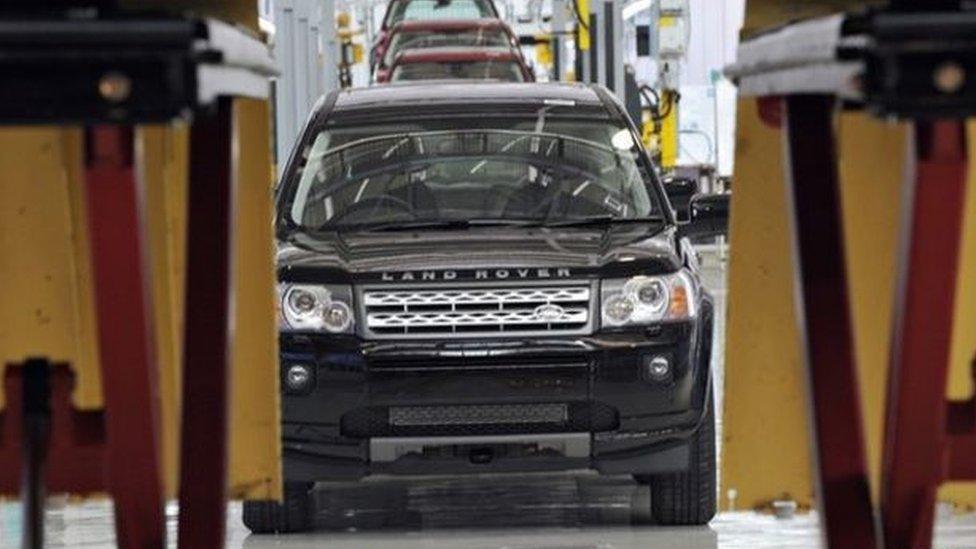
Jaguar Land Rover is now part of the vast Indian multinational, Tata
British behemoths like Unilever, HSBC, Standard Chartered Bank and British American Tobacco still have deep roots in India. Meanwhile, a new generation - think Costa Coffee, JCB, Vodafone - is proving that with patience and hard work British brands can prosper in India.
Even the British celebrity chef Jamie Oliver wants a bite of the action. He's just opened his first restaurant in Delhi.
Publicly the leaders say they hope the two countries will build on successes like these next week, but behind the scenes we are already being warned not to expect too much.
Propitious time
Word is there won't be any single multi-billion mega-project, instead we'll be told a lower-key story about closer financial ties, a smoothing of obstacles to trade, together with news of a clutch of smaller trade and investment deals.
But the trip comes at a propitious time for Mr Modi. He's just received a battering in a key election in the poorest state in India and this visit could be just the tonic he needs.
A photo-opportunity with Her Majesty, a rousing reception at the mother of parliaments and what the organisers of his Wembley gig claim will be the biggest fireworks display in British history should all help to burnish his image before he returns home to face his growing host of challenges.